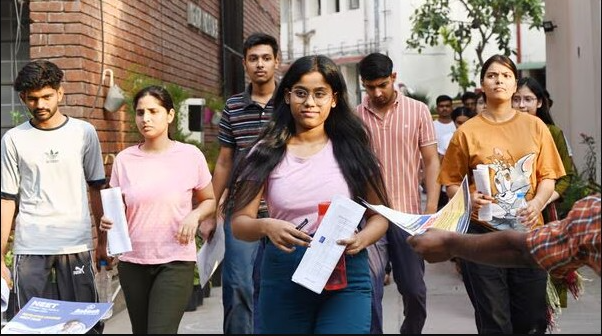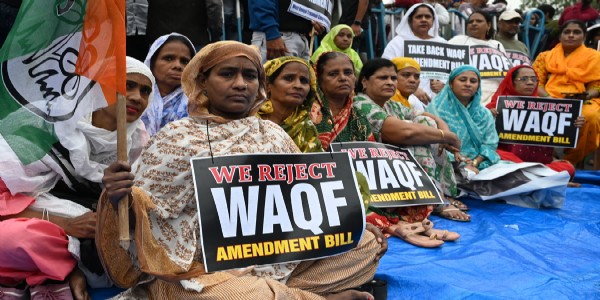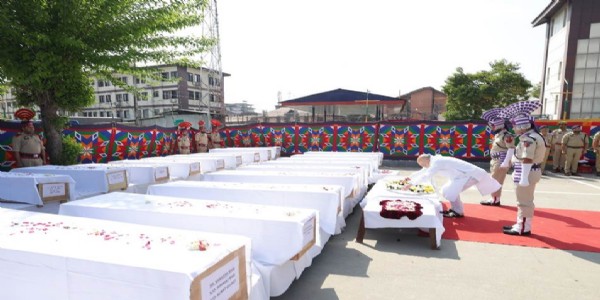Technology, a Saviour for the Leak- Proof Exam
Total Views | 516
Technology has developed at a great speed in the last couple of decades. Its influence can be witnessed in almost every field, especially where huge data, accuracy and safety are the basic needs. The examination systems at all levels, too use technology in a very positive way. Even schools adopt it when the internal school examination is conducted and the result sheets are to be prepared accurately.

State and national-level examination systems need to run efficiently. The future course of life of our students depends on them. So it is to be carefully designed and the system has to be tamper-proof. Question paper leaks cause uneasiness and frustration to a great extent. The help of technology can if used carefully, be expected in such situations.
For the exams, especially where multiple choice questions are used to evaluate the depth of knowledge, the system of pooling the questions and randomly selected questions for the exam works efficiently. The exam may have questions with different weights, there are many topics on which the questions are based. There can be a variety of questions included in the paper pattern. All such factors can be accommodated in this pool of questions. A small successful experiment of this was run at Maharshi Karve Stree Shikshan Sanstha some 12 years ago. It worked smoothly,it had good technical support. The online exam was conducted to screen the candidates. The questions were based on the textbooks of classes they were supposed to teach in schools and junior colleges. Of course, it threw some light on the extent of their grasp of the textbooks.
Usually, the topics have fixed weightage when the question paper is to be set. For getting one answer,the question may be framed in several ways. All such types of questions can be brought to the pool of questions. Experts know how to work on it. Questions with different weights may be framed on one topic. Every year questions need to be added. This is to be worked for all the topics. When a candidate enters the seat number and starts the exam, randomly selected questions from the huge pool appear on the screen, and the timer can be set with it. The process of picking up questions as per the norm can be designed carefully.
No two students in an examination hall would get the same question in the same order. The system would be leakproof. No help can be sought from anyone in the examination hall. The questions are different, the sequence is not the same but all the conditions on the weightage of topics are well taken care of.
Conducting online exams is a norm after the coronavirus phase. Almost all the schools have good computer labs, maybe this would give a strong push for making schools and colleges equipped with computer labs.
Even written exams can follow this system, the seat number would have the details of the students and their question paper set. It may be referred to when correction work is done. A variety of pools with all types of questions can be prepared. These pools need not be secret, they can be accessible to all. If the pools have a huge number of questions, studying them would help students to prepare well and get satisfactory knowledge of the topics.
Every topic may have a separate pool of questions, or there can be several categories of questions prepared. Expert committees can be formed, and more questions can be pooled every year till the syllabus does not exclude the topic or change the weightage.
Even if one question paper is to be printed, it may be prepared by giving suitable instructions. This would end the exercise of making several sets prepared by the examination body at different centres and picking up randomly one of them for printing. All experts may be suggested to add a variety of questions at their convenience throughout the year. Or some specific period may be allowed for the task when there is not much load on the teachers.
The question papers are sent to the centre and are printed at the centre, as is the practice for the professional courses. Once all the centres are equipped with the technical support, this may be thought of for the secondary or higher secondary state level examination also.
Use of the modern technology should not be avoided, people can be trained, this was proved after we all struggled during the corona phase.
If the technical infrastructure is made available, and teachers are trained, the system should work effectively. The students are already tech-friendly and have good knowledge of the latest technology. Starting with smaller size examinations to be sure of its smooth running and success, it can be adopted at any level of examinations.
Students certainly have the right to a fair evaluation of their abilities. Of course, the examination system too needs reformative measures adopted, but till that at least this can be done.

State and national-level examination systems need to run efficiently. The future course of life of our students depends on them. So it is to be carefully designed and the system has to be tamper-proof. Question paper leaks cause uneasiness and frustration to a great extent. The help of technology can if used carefully, be expected in such situations.
Leak-proof or tamper-proof system
For the exams, especially where multiple choice questions are used to evaluate the depth of knowledge, the system of pooling the questions and randomly selected questions for the exam works efficiently. The exam may have questions with different weights, there are many topics on which the questions are based. There can be a variety of questions included in the paper pattern. All such factors can be accommodated in this pool of questions. A small successful experiment of this was run at Maharshi Karve Stree Shikshan Sanstha some 12 years ago. It worked smoothly,it had good technical support. The online exam was conducted to screen the candidates. The questions were based on the textbooks of classes they were supposed to teach in schools and junior colleges. Of course, it threw some light on the extent of their grasp of the textbooks.
Details
Usually, the topics have fixed weightage when the question paper is to be set. For getting one answer,the question may be framed in several ways. All such types of questions can be brought to the pool of questions. Experts know how to work on it. Questions with different weights may be framed on one topic. Every year questions need to be added. This is to be worked for all the topics. When a candidate enters the seat number and starts the exam, randomly selected questions from the huge pool appear on the screen, and the timer can be set with it. The process of picking up questions as per the norm can be designed carefully.
No two students in an examination hall would get the same question in the same order. The system would be leakproof. No help can be sought from anyone in the examination hall. The questions are different, the sequence is not the same but all the conditions on the weightage of topics are well taken care of.
Conducting online exams is a norm after the coronavirus phase. Almost all the schools have good computer labs, maybe this would give a strong push for making schools and colleges equipped with computer labs.
Even written exams can follow this system, the seat number would have the details of the students and their question paper set. It may be referred to when correction work is done. A variety of pools with all types of questions can be prepared. These pools need not be secret, they can be accessible to all. If the pools have a huge number of questions, studying them would help students to prepare well and get satisfactory knowledge of the topics.
Every topic may have a separate pool of questions, or there can be several categories of questions prepared. Expert committees can be formed, and more questions can be pooled every year till the syllabus does not exclude the topic or change the weightage.
Even if one question paper is to be printed, it may be prepared by giving suitable instructions. This would end the exercise of making several sets prepared by the examination body at different centres and picking up randomly one of them for printing. All experts may be suggested to add a variety of questions at their convenience throughout the year. Or some specific period may be allowed for the task when there is not much load on the teachers.
The question papers are sent to the centre and are printed at the centre, as is the practice for the professional courses. Once all the centres are equipped with the technical support, this may be thought of for the secondary or higher secondary state level examination also.
Use of the modern technology should not be avoided, people can be trained, this was proved after we all struggled during the corona phase.
If the technical infrastructure is made available, and teachers are trained, the system should work effectively. The students are already tech-friendly and have good knowledge of the latest technology. Starting with smaller size examinations to be sure of its smooth running and success, it can be adopted at any level of examinations.
Students certainly have the right to a fair evaluation of their abilities. Of course, the examination system too needs reformative measures adopted, but till that at least this can be done.
Bharati Web








